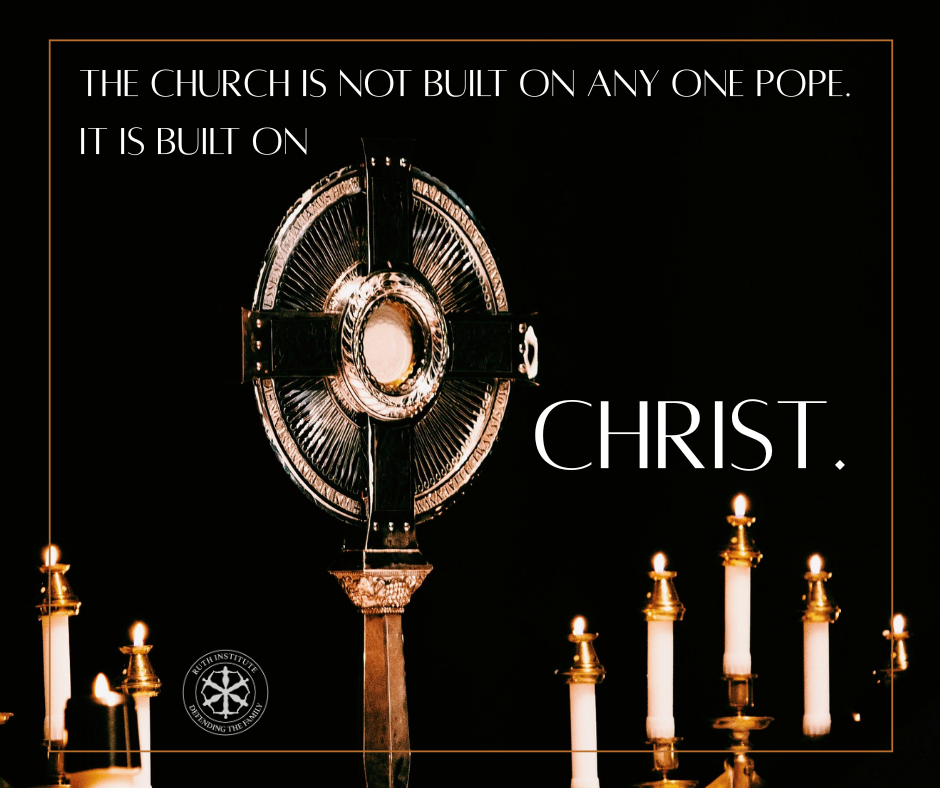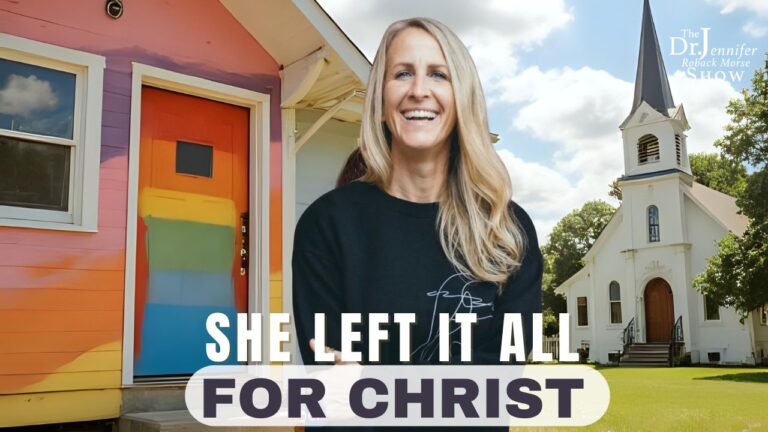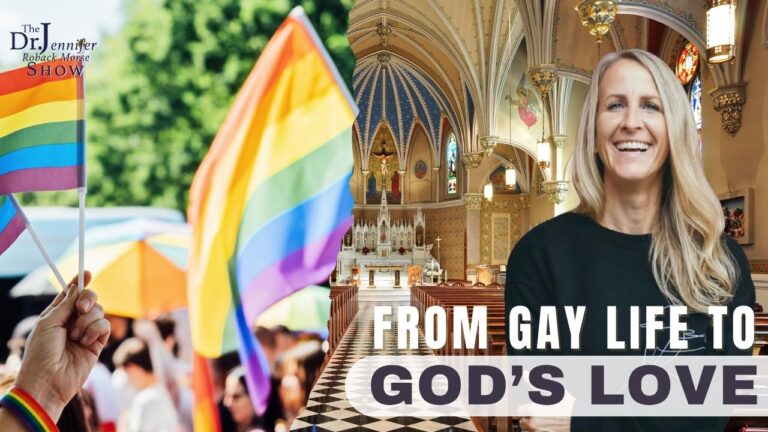Faith Hakesley
With Pope Francis’s death comes a complex wave of grief. His pontificate leaves many wounds.

Many people (Catholics and non-Catholics alike) are mourning a man they saw as warm, humble, and deeply concerned for the poor and marginalized. His words on mercy and his calls to lead with compassion touched countless hearts. He urged the Church to step outside its comfort zones and to accompany those who had long felt abandoned.
Yet for others, especially survivors of clerical abuse and those who have walked closely with the Church through its darkest failures, this moment carries a different kind of sorrow. There is grief for the painful legacy he leaves behind in the areas of accountability, justice, and truth.
Hope and Heartbreak
I don’t want to tear down the late pope or dissect his every decision. Yet, it’s important to speak the truth: For many of us who have lived through the abuse crisis, the Francis years were a mix of hope and heartbreak. He spoke of “zero tolerance,” formed commissions, and met with survivors. Yet time and again, when close friends or powerful allies were accused of misconduct, the rules seemed to bend or seemingly vanish.
As Catholic journalist and commentator with the Pillar Ed Condon recently wrote: “Few of the new rules and none of the promises of transparency were brought to bear when friends of Francis…found themselves indicted for crimes of abuse.”
Sadly, that is a painful truth.
We saw it with Bishop Gustavo Zanchetta, a longtime friend of Francis, whose sexual misconduct allegations were minimized until media pressure forced action. We saw it with Fr. Marko Rupnik, excommunicated for grave abuse, only to have it quietly lifted. His artwork (inspired by his victims) is still displayed in Vatican spaces and other sacred places.
We saw it in the early years of Francis’s papacy, when questions lingered about what he knew regarding Theodore McCarrick and why warnings, like those reportedly sent to then-Bishop McElroy, were ignored. Survivors and whistleblowers were sidelined, silenced, or simply erased from the conversation.
Confusion and Contradiction
Francis’s papacy was often marked by contradiction. While preaching humility, he sometimes dismissed those who disagreed with him (traditional Catholics to name one example). He condemned clericalism and yet sometimes protected clerics credibly accused of abuse. While Francis often preached mercy, some Catholics (especially those devoted to traditional liturgy and clear doctrine) felt mocked and were labeled as “rigid.”
Spiritual order is not rigidity. Clarity is not a flaw. Demanding accountability is not a lack of mercy. Yet in a Church already shaken by scandal and weakened catechesis, Francis’s often-ambiguous statements added to the confusion.
As a survivor, I never forgot his famous “Who am I to judge?” line. To me, it signaled how scandal was often handled under his leadership: a reluctance to judge when judgment was needed. Mercy was often extended to the guilty, while the wounded waited at the back of the line.
His appointments only deepened the divide. Cardinals like Robert McElroy and Victor Manuel Fernández were elevated despite serious concerns (just to name a couple). Meanwhile, survivors who should have been central to any reform, were consistently pushed aside.
Yet, voices from the LGBTQ community were continually highlighted, led by Fr. James Martin, a fellow Jesuit and close ally of Francis. The German bishops seemingly created their own version of the Catholic Church when it came to homosexual unions, and yet Francis didn’t really come down on them as hard as he should have. He showed more harshness to Traditional Catholics (aka rigid catholics). Environmental concerns became front and center. Yet, the voices of the wounded (of survivors) frequently faded into the background. The truth is, the scandal is far from over.
Not a Terrible Pope but Not a Shepherd for All the Wounded
Eric Sammons of Crisis Magazine recently called Francis “a terrible pope.” I respectfully disagree. I saw a man who loved deeply, who preached mercy, and who undoubtedly suffered. But I will say this: Francis left many of us feeling unheard, unprotected, and confused.
The wound of abuse in the Church remains wide open. And under his leadership, too often, those most wounded by the Church were left waiting for mercy and help that never came.
A New Pope
We must pray fervently for our new pope, Pope Leo XIV, that he will be a holy man who allows the Holy Spirit to guide him boldly and humbly. The Church needs more than nice words. It needs courageous action. A new pope must be willing to:
- Truly listen to survivors without spin, self-interest, or attempts to reshape their stories.
- Hold abusers and enablers accountable, no matter their status. No exceptions.
- Prioritize transparency over institutional self-preservation.
- Offer clear moral and theological teaching instead of ambiguity.
- Acknowledge the presence of the Lavender Mafia within the Church, and take real decisive steps to root it out.
What Can the Laity Do?
While leadership is critical, everyday Catholics also have a vital role in rebuilding a culture of justice and healing. We can:
- Listen to survivors with compassion, not with suspicion or judgment.
- Be willing to acknowledge the presence of the Lavender Mafia within the Church and accept that corruption and scandal can never destroy the Church. Remember that speaking up against evil is a sign of love for the Church!
- Be the hands and feet of Christ. Survivors need Christ, not shame.
- Speak up when Church leaders fall short. Silence enables harm.
- Support real reform in your diocese. Ask your bishop what safeguards are in place and how survivors have been included in creating those.
- Pray and fast for survivors, for purification in the Church, and for holy leadership.
- Reject the art and work of abusive clergy such as Rupnik. Beauty cannot justify suffering.
The Way Forward
In some ways, the confusion of these last years has forced Catholics to go deeper and return to our roots. Many of us have turned to the Catechism, Canon Law, and Church history to find truth and stability. That’s not a bad thing! Weak catechesis and unsteady shepherds have made this necessary.
We know that God can use even this storm to bring us back to Him.
We must remember that leaders will fail. The Church is not built on any one pope. It is built on Christ. The Catechism is still solid. Scripture is still alive. Church doctrine is still firm.
Keep a copy of the Bible. Keep a copy of the Catechism. Keep reading, learning, and asking questions. Keep praying. As St. John Paul II reminded us, “Be not afraid.”
Here’s a consoling truth: No pope, no matter how powerful or flawed, can destroy the Church. The Church belongs to Christ, and He will never abandon His Bride.
The Real Work Continues
Let us come together and pray. We pray for a new pope and for a Church to protect the innocent, comfort the wounded, and speak the truth with love and courage.
The wounds may remain but so does the hope.
As Pope Benedict XVI once told me: “There is always hope.” Let’s cling to that truth.



